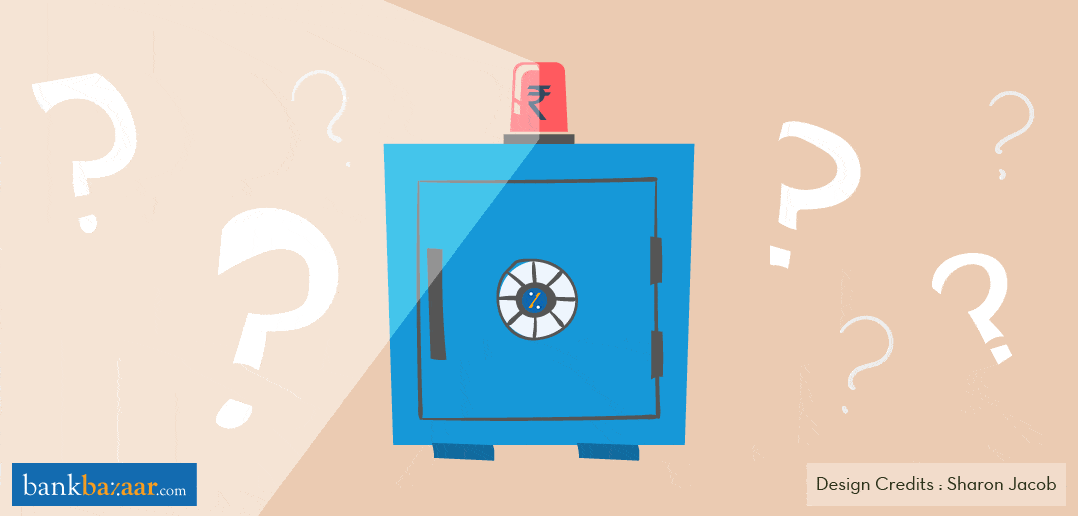Building an emergency fund can provide a solid foundation for your long-term financial plan and also amass savings to fall back on! If you are looking for some help planning an emergency fund, here is a handy guide to get you started.

Let’s start with the basics – what is an emergency fund? An emergency fund is savings set aside to pay for large, unforeseen expenses, like unexpected medical expenses, home improvement/repairs or unemployment too! In concept, financial security and emergency funds are very synonymous with each other.
Additional Reading: Is Financial Security The Same As Financial Stability?
How Much Should You Save Every Month?
Ideally, we suggest you save at least 2-3 months’ worth of living expenses in an emergency fund. However, an even larger emergency fund can help make sure you’re able to handle a large financial setback. Aim for a larger amount. Saving up may feel tedious at first, but even a small emergency fund is more beneficial than having none.
Begin by looking back at your expenses over the last few months to ascertain how much you spend on a day-to-day basis. Start budgeting to figure out how much you can set aside for your emergency fund every month. Choose a suitable budgeting method to help.
Set Your Emergency Fund Goal
It is now more important than ever to set a goal for your emergency fund and celebrate even the small milestones along the way.
Additional Reading: Personal Finance 101: Save More Money Without Even Realising It
Make The Most of One-time Opportunities to Save
It is important to consider certain times during the year when you get a higher inflow of funds. For example, a tax refund can be one of the most highly anticipated ones you receive all year. Resist the urge to spend it and move it to your emergency fund. In the longer run, you’ll be thankful for making this decision.
When it comes to saving money for your emergency fund, there are different options you can explore.
Savings Account for the Win!
Consider opening a separate savings account for your emergency fund, so you can avoid spending from it. Moreover, the additional interest you earn contributes to your savings. A great way to adhere to your budget!
Additional Reading: Do You Know The Difference Between A Current And Savings Account?
You can also move extra savings into your savings account whenever you want. If you have money left over by the month’s end, simply add it to your special savings account.
While opting for a savings account, consider features like interest rates, the minimum balance for the account and transaction charges/service charges.
Additional Reading: How To Pick A Savings Account Best Suited For You
Invest In Liquid Funds
A low-risk option for investing, liquid funds are a type of mutual fund that invest in securities with a residual maturity of up to 91 days. There is no lock-in period and withdrawals also get processed within 24 hours. The cost of investing and penalty for withdrawal is nil.
Additional Reading: Liquid Funds or Savings Accounts – The Liquid Funds Perspective
Fixed Deposit
You can also opt for a fixed deposit for your savings goal. It is quite beneficial too as it can also be easily accessed in case of emergencies. Also, consider sweep-in fixed deposits that will automatically take care of any excess cash you may have lying in your regular savings account. The additional interest you earn is just what you needed!
Additional Reading: Answering All FAQs On Fixed Deposits
Sweep-in Fixed Deposit
This is a good option if you have surplus cash in hand and are looking for higher rate of returns. Linked to your savings account, you can specify the amount you want to sweep into a fixed deposit. You can easily make a withdrawal in case of an emergency, without affecting your savings or even breaking the deposit amount. What’s more? You will continue to earn interest on the full fixed deposit amount. However, there is a small penalty for early withdrawal.
Recurring Deposit
A type of Term Deposit, a recurring deposit allows you to deposit a fixed amount every month. You are bound to set aside a certain amount which gets debited at regular intervals – ensuring you don’t miss any payments towards your emergency fund. The fixed rate of interest also makes them less risky compared to other investment options.
Automate Your Savings
Opt for an automatic transfer or auto-debit system when it comes to saving for your emergency fund. It makes the entire process more effortless, and you’ll surely never default on your savings goal for the month. Set up the date and the preferred amount to be debited for consistent contributions to your emergency fund.
Keep tabs on your emergency fund regularly. There are many factors that could possibly change. For example, your cost of living could go up or simply a raise at your current job is enough reason to re-evaluate and reassess your savings contribution.
When Should You Dip into Your Emergency Fund?
It is important for you to know the distinction when it comes to what constitutes an emergency or an unexpected expense. Not every large expense is a good enough reason to dip into your emergency fund.
Additional Reading: 7 Important Questions To Ask Yourself Before Dipping Into Your Emergency Fund
Nevertheless, don’t think twice during times of need. Even if a situation arises where your emergency fund is drained, just stop, re-evaluate and start building your emergency fund again. Looking for other financial products to help you through a financial crisis? We’ve got you covered!